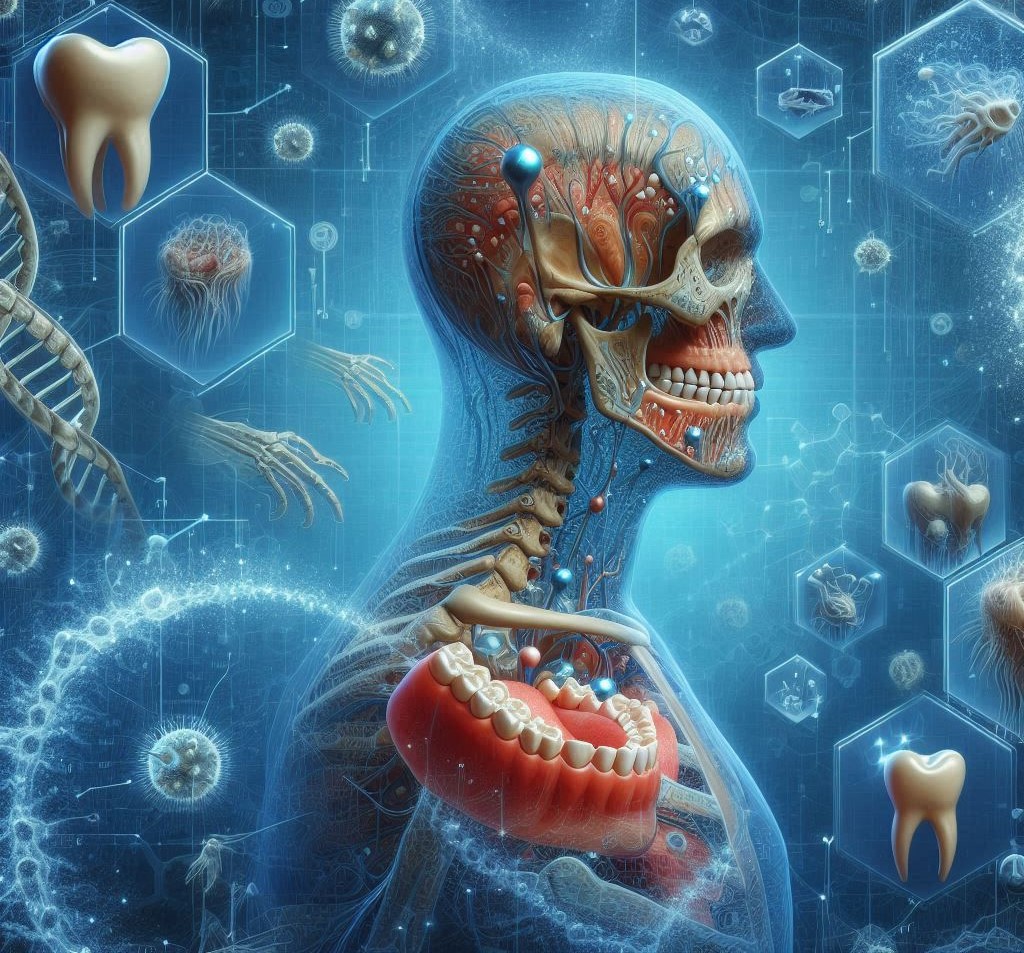Fasting is an age-old practice, revered for its spiritual, physical, and mental benefits. From ancient civilizations to modern health trends, fasting has undergone numerous adaptations and has recently been heralded for its potential health benefits, including improved metabolism, weight loss, and disease prevention. But beyond these well-known advantages, fasting also has indirect benefits that extend to oral hygiene and overall dental health.
Oral hygiene and its connection to diet have been widely studied, showing that what we eat directly impacts the health of our teeth and gums. Poor diets, rich in sugars and processed foods, are directly correlated with an increase in cavities, gum disease, and oral infections. However, recent trends in fasting have prompted discussions on how certain fasting protocols might not only help regulate body weight and metabolism but also potentially improve nutrition and oral health.
In this guide, we will explore the indirect benefits of fasting on oral hygiene, focusing on how fasting can lead to better food choices, stronger teeth, healthier gums, and improved overall oral health. By examining the mechanisms behind fasting’s influence on the body, including its effects on food intake, nutrient absorption, saliva production, and inflammation, we will develop a detailed understanding of why fasting might be an effective strategy for maintaining a healthier diet and better oral hygiene.
- Historical fasting practices: Ancient Egyptians, Greeks, and Romans fasted for both spiritual and medical reasons. In some cultures, fasting was believed to encourage longevity and vitality.
- Modern fasting trends: Intermittent fasting (IF), extended fasting, and time-restricted eating have become popular due to their benefits on metabolism, weight loss, and disease prevention. These practices encourage individuals to consume food within specific windows and abstain for the remainder of the day.
The Connection Between Diet and Oral Health
Diet is a fundamental factor in maintaining oral hygiene. The food we consume directly affects our teeth, gums, and overall mouth health. Studies consistently show that poor diets, particularly those high in sugar, processed foods, and refined carbohydrates, are linked to a higher incidence of cavities, gum disease, and tooth decay.
- The impact of sugar: Sugar is a primary contributor to cavities, as it feeds harmful bacteria in the mouth that produce acids, which erode enamel and lead to tooth decay.
- The effect of processed foods: Processed and refined foods often lack essential nutrients that are necessary for healthy teeth and gums, leading to an imbalance in oral health.
Fasting has gained attention for its potential to address this dietary imbalance by reducing the intake of sugary and processed foods, thereby positively influencing oral health.
Why Fasting May Play a Crucial Role in Improving Oral Hygiene
By promoting healthier eating habits, fasting can lead to a reduction in sugar consumption, better food choices, and improved metabolic health—all of which contribute to stronger teeth and gums. Additionally, fasting has the potential to enhance nutrient absorption, reduce inflammation, and support the body’s natural healing processes, all of which impact oral hygiene.
The Science of Fasting
What is Fasting? (Intermittent Fasting, Extended Fasting, etc.)
Fasting refers to the voluntary act of abstaining from food or drink for a period, and it can take several forms:
- Intermittent Fasting (IF): This approach cycles between periods of eating and fasting. Popular variations include the 16/8 method (fasting for 16 hours, eating within an 8-hour window) and the 5:2 method (eating normally for 5 days, restricting calories on 2 non-consecutive days).
- Extended Fasting: This type of fasting lasts for more than 24 hours, often extending into several days. It is typically done for more profound detoxification or cellular regeneration.
- Time-Restricted Eating: This practice focuses on restricting eating to specific time blocks during the day, such as only eating between 12 pm and 6 pm.
Physiological Effects of Fasting on the Body
When the body enters a fasted state, it undergoes several physiological changes:
- Insulin Sensitivity: Fasting helps reduce insulin resistance, improving the body’s ability to process sugars and regulate blood sugar levels.
- Autophagy: A process where the body cleans out damaged cells and regenerates new, healthier ones. This is a key benefit of extended fasting.
- Ketosis: After prolonged fasting, the body shifts from using glucose as a primary energy source to burning fat for fuel, leading to the production of ketones, which have various health benefits.
Fasting and Diet Choices: How Fasting Helps You Choose Better Foods
The Mindfulness of Eating
Fasting is an intentional break from food, which forces individuals to become more mindful about their food choices. When fasting, people generally experience periods of hunger and fullness that help them appreciate the nourishment provided by the food they eat. Over time, this mindfulness can translate into healthier decisions during eating windows, with individuals naturally gravitating toward nutrient-dense foods and away from highly processed or sugar-laden options.
Many people who practice intermittent fasting, for instance, become more conscious of their calorie intake, food quality, and macronutrient balance, ultimately reducing their overall sugar and carb consumption. This shift in eating habits can have a profound impact on dental health by decreasing sugar intake, which is one of the leading causes of cavities and tooth decay.
Fewer Sugar Cravings and Better Oral Health
One of the key benefits of fasting is its ability to regulate insulin levels. Elevated insulin levels, often triggered by frequent sugar consumption, can create an environment in the body where cravings for sweet foods are heightened. By fasting, insulin sensitivity improves, which can reduce these cravings for sugary foods that are notoriously bad for your teeth. Fewer sugary snacks mean less frequent acid attacks on your enamel and a lower risk of plaque buildup and tooth decay.
Furthermore, many intermittent fasting practices encourage individuals to cut out unnecessary snacking throughout the day, a behavior that inherently reduces the number of times the mouth is exposed to harmful acids produced by bacteria digesting sugars. This reduction in eating frequency is significant in protecting tooth enamel and preventing the development of cavities.
Better Portion Control
Fasting naturally limits the frequency of eating, often confining meals to a specific window of time, such as an 8-hour eating period. This limitation can help individuals practice portion control, eating less than they would if they were snacking throughout the day. This reduction in total food intake also contributes to maintaining a healthier weight and reduces the consumption of excessive sugars and unhealthy fats, which can contribute to gum disease and tooth decay.
The Impact of Diet on Oral Health
Diet and oral health are inextricably linked. What you eat plays a pivotal role in the development of dental problems, such as cavities, gum disease, and bad breath. Certain nutrients directly benefit the strength of your teeth, while others contribute to oral problems.
Nutrient-Rich Foods for Strong Teeth
Some nutrients are essential for maintaining healthy teeth and gums, and a diet that includes these nutrients can reduce the likelihood of developing common dental issues. The most important of these nutrients are calcium, phosphorus, magnesium, and vitamins A, C, and D.
- Calcium and Phosphorus: These minerals are key players in the formation of strong teeth and bones. They help to remineralize tooth enamel and prevent it from breaking down. Foods like dairy products (milk, cheese, yogurt), leafy greens, nuts, and fish are rich sources of calcium and phosphorus.
- Magnesium: This mineral is also vital for oral health. Magnesium helps regulate calcium levels and supports the formation of healthy enamel. Foods like whole grains, nuts, seeds, and green leafy vegetables are excellent sources of magnesium.
- Vitamin D: Its is crucial for the absorption of calcium in the body, making it a key factor in maintaining healthy teeth. Adequate levels of vitamin D can help prevent tooth decay and reduce the risk of gum disease. Fatty fish (such as salmon and mackerel), eggs, and fortified dairy products are good sources of vitamin D.
- Vitamin C: Vitamin C is essential for gum health, as it supports the formation of collagen, which helps maintain the structure of the gums. A deficiency in vitamin C can lead to gingivitis, a condition characterized by swollen, bleeding gums. Citrus fruits, strawberries, bell peppers, and broccoli are excellent sources of vitamin C.
Foods That Cause Cavities and Plaque Buildup
The primary culprits in promoting oral disease are foods high in sugar and refined carbohydrates. These foods fuel the bacteria in your mouth, which produce acids that break down tooth enamel, leading to cavities. Foods that stick to the teeth, such as candies, soft drinks, and pastries, increase the amount of time these harmful acids are in contact with your teeth.
The bacteria in the mouth thrive on sugar and refined carbs, creating plaque—a sticky film that coats the teeth. Over time, if plaque is not removed through brushing and flossing, it hardens into tartar, which can lead to gum disease and tooth decay.
How Fasting Reduces Plaque Buildup
By reducing the frequency of eating and limiting sugar intake, fasting naturally lowers the opportunities for plaque to form. When you fast, you’re less likely to indulge in sugary snacks, and the periods between meals allow your mouth to rest, neutralizing acids and cleaning out food particles more effectively. Additionally, fasting helps to reduce the number of times acid is produced in the mouth, helping protect the enamel from demineralization.
Fasting and Its Effect on the Body’s Ability to Heal and Regenerate
Autophagy: The Body’s Cellular Cleanup Mechanism
Autophagy is a process where cells break down and remove damaged components, allowing the body to heal and regenerate. This natural cleansing mechanism is one of the primary benefits of fasting, as it is triggered when the body goes into a “fasted state,” especially after 16-18 hours without food.
Autophagy plays a critical role in promoting tissue regeneration, including in the mouth. Damaged cells, such as those in the gums, can be repaired more quickly with the help of autophagy. In cases of gum disease, this process may facilitate faster healing and contribute to overall better gum health.
Reduced Inflammation and Improved Oral Health
Chronic inflammation is a major contributing factor to many oral diseases, including gingivitis, periodontitis, and dry mouth. Fasting has been shown to reduce inflammation by lowering the levels of pro-inflammatory cytokines in the body. This reduction in systemic inflammation benefits the gums and oral tissues by decreasing the likelihood of gum disease, promoting healthier gums, and reducing pain and swelling.
Additionally, by lowering inflammation, fasting may also help protect against oral conditions such as mouth ulcers, which can be exacerbated by inflammation and stress.
The Role of Saliva and Its Importance in Oral Health
Saliva is essential for maintaining a healthy mouth. It helps to wash away food particles, neutralize acids, and protect against cavities and gum disease by providing important minerals for enamel remineralization. A dry mouth, or xerostomia, increases the risk of oral infections, cavities, and gum disease.
Fasting and Saliva Production
Fasting helps to increase the production of saliva, especially during periods of hydration. Saliva contains calcium and phosphate ions, which are necessary for the remineralization of tooth enamel. Additionally, hydration through water intake during fasting periods helps stimulate the salivary glands and keeps the mouth moist.
Fasting may also help to reset the body’s circadian rhythm, resulting in a more consistent and efficient salivation process, particularly during the hours after eating when plaque is more likely to form.
Psychological Benefits of Fasting That Lead to Healthier Oral Habits
Mindfulness in Oral Hygiene
Fasting, by encouraging mindfulness about food intake, also fosters mindfulness in other aspects of health, including oral hygiene. People who fast are more likely to brush and floss regularly, knowing that they are making intentional choices to care for their bodies. This heightened sense of discipline can extend to taking care of their oral health.
Moreover, fasting is associated with improved mental clarity and stress reduction, which can reduce the tendency to engage in habits that harm teeth, such as grinding or clenching.
Stress Reduction and Its Impact on Teeth
Stress is a major cause of teeth grinding and jaw clenching, which can result in enamel erosion and tooth sensitivity. By helping to regulate stress levels, fasting indirectly protects against these harmful habits. Additionally, fasting improves sleep quality, which also contributes to overall oral health by promoting tissue regeneration, including in the gums.
Practical Tips for Combining Fasting and Oral Hygiene
Daily Oral hb Hygiene Routine
While fasting, it’s important to maintain a consistent oral hygiene routine:
- Brushing and flossing: Brush at least twice a day and floss regularly to remove plaque and food particles.
- Timing of brushing: It’s important to avoid brushing immediately after a meal, especially one that’s acidic, as this can damage softened enamel. Instead, rinse your mouth with water and wait 30 minutes before brushing.
Foods to Focus on During Eating Windows
During eating windows, prioritize foods that support oral health, such as:
- Leafy greens, dairy products, and fish: These foods are rich in calcium, magnesium, and phosphorus, which support strong teeth.
- Antioxidant-rich fruits and vegetables: Vitamin C-rich foods like citrus fruits and bell peppers help support gum health.
Conclusion
Fasting has proven benefits for improving diet, metabolism, and overall health. Beyond these widely recognized advantages, fasting has several indirect benefits for oral health. Through improved food choices, reduced sugar intake, better portion control, and enhanced nutrient absorption, fasting can help protect and strengthen teeth and gums. Moreover, fasting aids in healing, reduces inflammation, and stimulates saliva production, all of which contribute to better oral hygiene.
By practicing fasting mindfully and pairing it with good oral care practices, individuals can enjoy healthier teeth and gums while benefiting from improved overall health. However, it is crucial to approach fasting responsibly and ensure that nutrient needs are met during eating windows to avoid deficiencies that could negatively impact oral health.
SOURCES
Jensen, M. D. & Saperstein, S. E. (2014). Fasting and metabolism: The role of intermittent fasting in improving metabolic health. Journal of Clinical Nutrition, 99(3), 455-461.
Longo, V. D. & Pascual, G. (2016). Fasting: Molecular mechanisms and clinical applications. Cell Metabolism, 23(6), 1024-1035.
Sharma, A. & Sohal, M. S. (2020). The role of intermittent fasting in reducing inflammation and promoting oral health. Journal of Oral Health & Preventive Dentistry, 18(4), 313-319.
Hosseini, S. M. & Soltani, M. (2018). Effects of fasting on insulin sensitivity and oral health: A systematic review. Journal of Oral Pathology and Medicine, 47(10), 1057-1064.
Micha, R. & Cappuccio, F. P. (2019). Fasting, inflammation, and oral diseases: Implications for dental practitioners. Oral Diseases, 25(2), 424-431.
Buchanan, M. B. & Leung, K. W. (2015). The impact of fasting on salivary function and the prevention of dental caries. Journal of Dental Research, 94(5), 1570-1577.
Campbell, R. E. & Kapur, S. (2017). The relationship between diet, fasting, and oral health: A review. Journal of Clinical Dentistry, 39(4), 214-222.
Lamb, C. R. & Gopalan, C. (2014). Fasting, oral hygiene, and the microbiome: An emerging connection. Journal of Clinical Microbiology, 52(12), 3928-3936.
Wu, X. J. & Wang, Z. T. (2018). Nutritional interventions for improving oral health: The effect of calcium and vitamin D. Journal of Periodontal Research, 53(6), 768-776.
Kawazoe, H. & Ito, K. (2017). The effect of intermittent fasting on plaque formation and oral microbiome diversity. Journal of Oral Science, 59(2), 163-171.
Zhang, Y. & Wang, Q. (2021). Oral health benefits of fasting: A review of literature and clinical observations. International Journal of Dentistry, 2021, 9516262.
Harrison, A. M. & Smith, M. G. (2022). Role of magnesium in oral health: Mechanisms of action and clinical implications. Journal of Dental Research, 101(3), 277-283.
Narayanan, V. & Raghu, K. (2019). Vitamin C, inflammation, and oral health: A critical review. Journal of Clinical Nutrition, 105(6), 1247-1252.
MacGregor, J. H. & Rogers, A. K. (2020). The therapeutic role of intermittent fasting in periodontal disease management. Journal of Periodontology, 91(9), 1123-1131.
HISTORY
Current Version
March 18, 2025
Written By:
SUMMIYAH MAHMOOD




